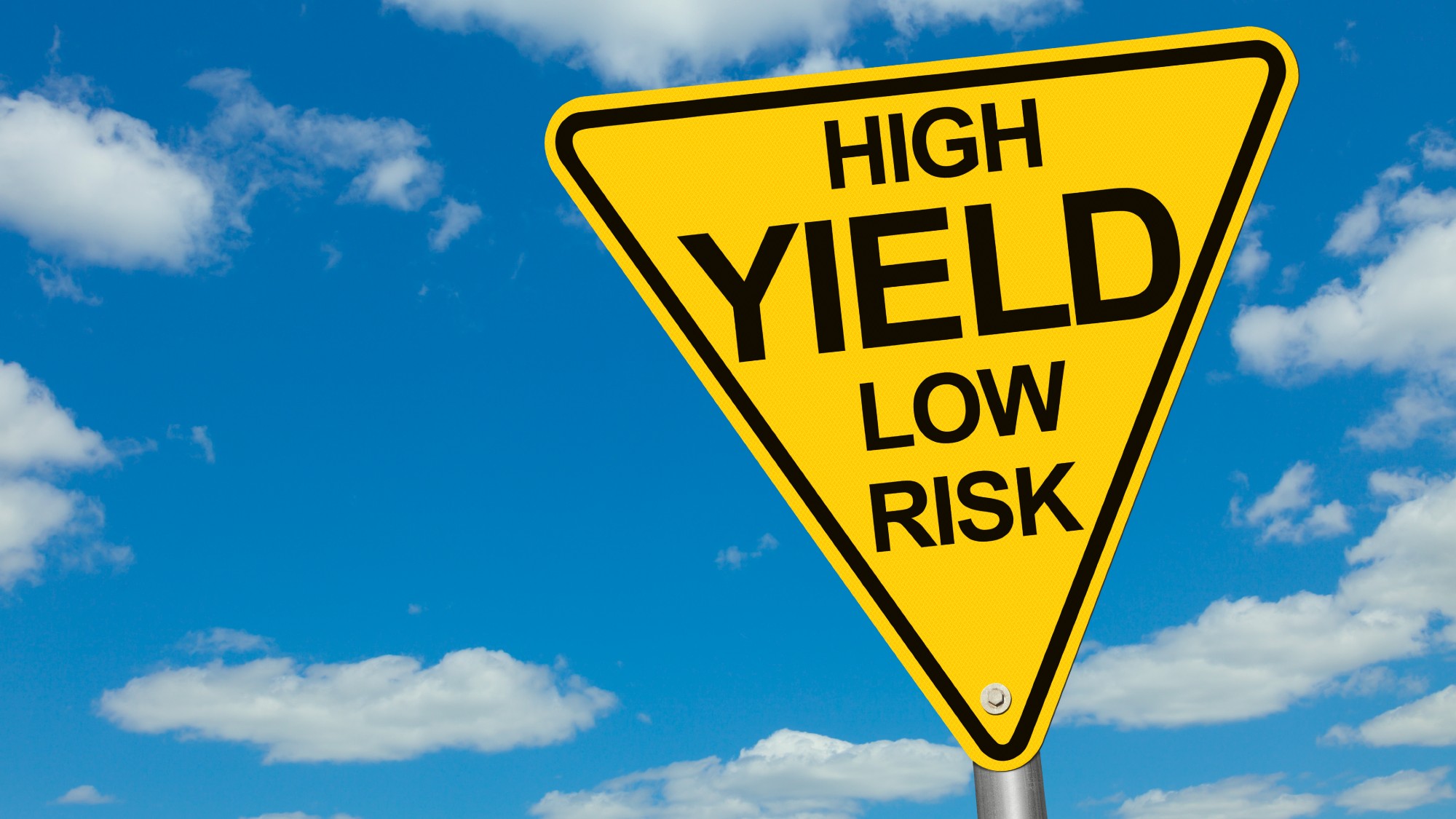The pros and cons of a high-yield savings account
They can pay up to 10 times more than a standard savings account


A free daily email with the biggest news stories of the day – and the best features from TheWeek.com
You are now subscribed
Your newsletter sign-up was successful
A high-yield savings account delivers exactly what its name suggests: higher yields on your deposits. Indeed, high-yield savings accounts "can pay up to 10 to 12 times the national average of a standard savings account," said Investopedia.
This category of savings accounts are typically offered by online banks and credit unions, as opposed to traditional brick-and-mortar banks. This is often possible to do because these online institutions have fewer overhead costs. But otherwise, high-yield savings accounts tend to work in much the same way a savings account usually does — you deposit money, and in exchange, the bank pays you interest.
Like any other financial product though, there are both upsides and downsides to high-yield savings accounts, and they tend to make more sense for some savings situations than others.
The Week
Escape your echo chamber. Get the facts behind the news, plus analysis from multiple perspectives.

Sign up for The Week's Free Newsletters
From our morning news briefing to a weekly Good News Newsletter, get the best of The Week delivered directly to your inbox.
From our morning news briefing to a weekly Good News Newsletter, get the best of The Week delivered directly to your inbox.
What are the pros of a high-yield savings account?
Here are the major upsides of high-yield savings accounts:
You'll earn more than with a traditional bank account. Perhaps the greatest benefit of a high-yield savings account is the APY, or annual percentage yield. For instance, when in March 2023 the national average APY was 0.35%, some high-yield savings accounts had APYs "north of 4%," said Yahoo Finance. Additionally, said CNBC Select, "because these savings accounts compound interest daily, you’re earning interest each day."
Your money is insured. Another major perk of the high-yield savings account is that they are often "FDIC or NCUA insured, meaning that if something were to happen to the bank your account is with, your money will still be safe," said Kiplinger. (Your deposits are insured up to the legal limit, which is up to $250,000 per account.) Plus, unlike with the stock market, "you're guaranteed to get the principal you deposit into a high-yield savings account plus any interest you earn (as long as your account has deposit insurance)," said Yahoo Finance.
You can access your money when you need it. Lastly, said Yahoo Finance, "the money in your high-yield savings account is accessible if needed, which can be helpful in a financial emergency." Still, there might be some limits on how many withdrawals and transfers you can make per month.
A free daily email with the biggest news stories of the day – and the best features from TheWeek.com
What are the cons?
There are downsides of high-yield savings accounts as well:
You will not earn as much as you could investing. "If you're looking to really grow your wealth over the long term, holding too much in savings could actually work against you," said Experian, as "even the highest APYs lag behind average annual stock market returns, which have historically been around 10%."
Interest rates can fluctuate. Another thing to keep in mind with high-yield savings accounts is that their interest rates "are variable and can fluctuate at any time, so while a bank may advertise a high annual percentage yield (APY) when you apply, it likely won't last forever," said CNBC Select. Further, said Forbes, banks "occasionally restrict their highest interest rate to balances below a certain threshold."
There are often transfer and withdrawal limits, and sometimes fees. While the funds in a high-yield savings account are easier to access than, for instance, a CD, you'll still likely face limits on how many withdrawals and transfers you can make each month. And while "most high-yield savings accounts don't charge monthly fees," that "isn't a hard-and-fast rule," said Experian.
What are the best uses for a high-yield savings account?
High-yield savings accounts serve some purposes better than others. For instance, they are typically not as good for "long-term wealth-building or retirement savings," as their interest rates "may not outpace inflation, potentially eroding your purchasing power over time," said Forbes.
However, said Forbes, "having at least one high-yield savings account is worth it for most people," particularly when it comes to:
An emergency fund. Since they are both easily accessible and allow you to earn some interest, "high-yield savings accounts are an excellent choice for building an emergency fund," said Forbes.
Short-term savings goals. "If you're planning to take a vacation in three to six months or need to save up for a home repair, earning more in a high-yield savings account can be incredibly helpful in covering these costs," said Fortune. A high-yield savings account also may come in handy when saving for a large purchase, such as a car or home.
Becca Stanek has worked as an editor and writer in the personal finance space since 2017. She previously served as a deputy editor and later a managing editor overseeing investing and savings content at LendingTree and as an editor at the financial startup SmartAsset, where she focused on retirement- and financial-adviser-related content. Before that, Becca was a staff writer at The Week, primarily contributing to Speed Reads.
